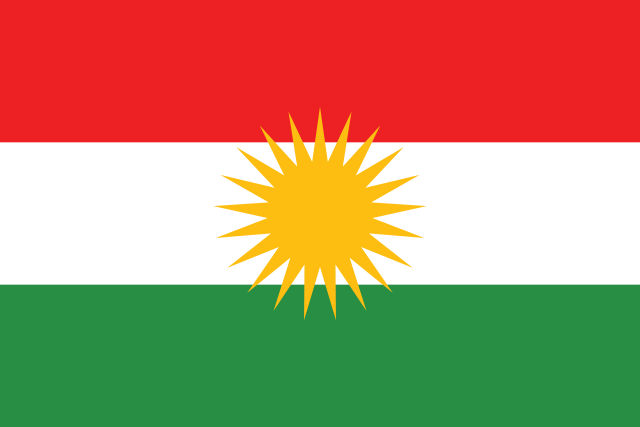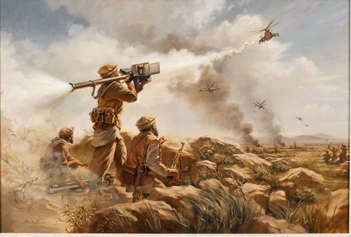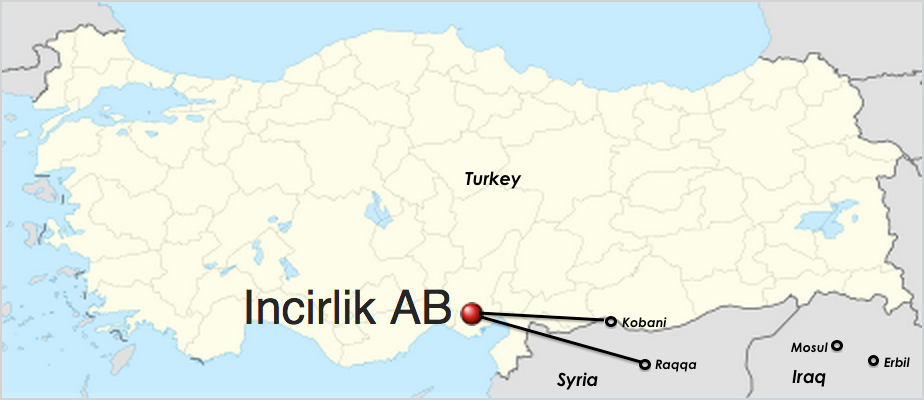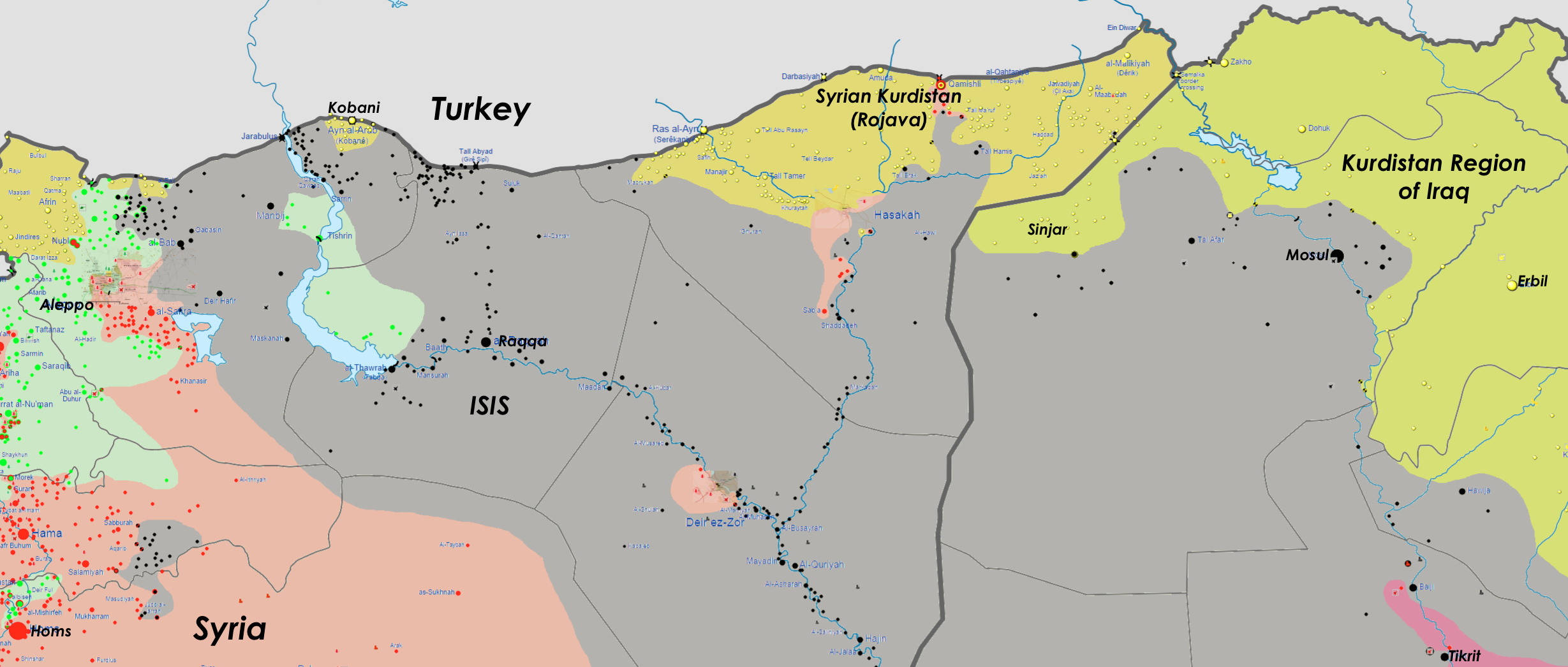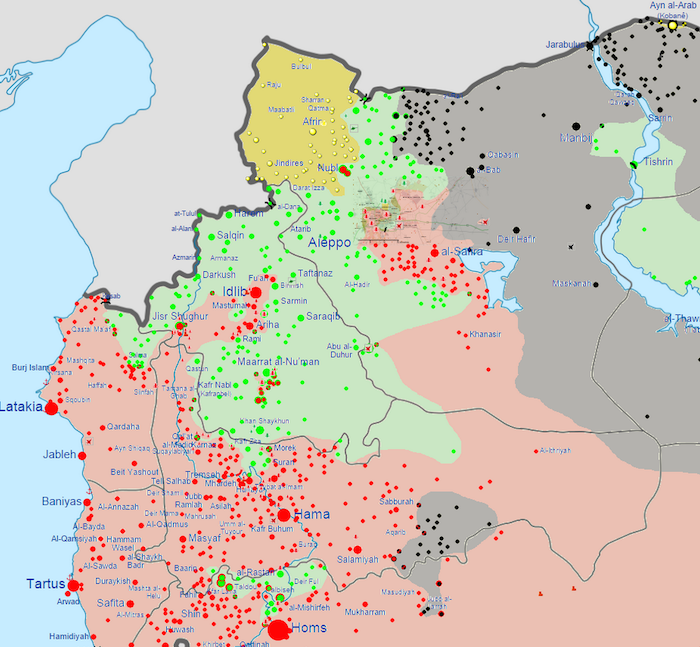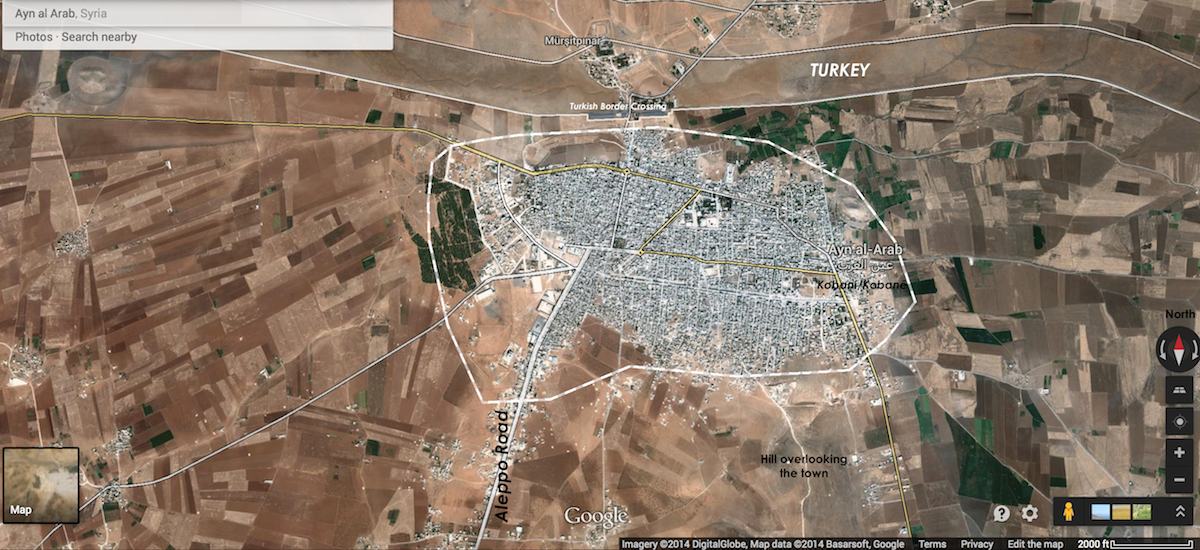Global coverage of the Kurdish struggles with ISIS in northern Syria and northern Iraq has included a pretty strong focus on the role of women in the Kurdish paramilitaries. Several weeks ago, Marie Claire of all places published a lengthy freelance piece featuring photos and interviews with Kurdish women fighting ISIS.
(Slightly outside the topic of Kurdish fighters, we also saw the viral rise of a photo by Zmnako Ismael of Runak Bapir Gherib, a 14-year-old Yazidi girl determinedly packing a Kalashnikov gun half her height to protect her fleeing family from ISIS, despite a look of pure exhaustion. It’s one of the most powerful photos of survival that I’ve ever seen)
Some of the coverage of the Kurdish women in combat has perhaps been a bit skewed toward the overly dramatized wondrous-curiosity angle of “Hey look at this unusual thing and how unusual it is” or toward the morbid.
Granted, ISIS hasn’t exactly been doing itself favors with either the ladies or media coverage, by issuing proclamations like this:
“We will conquer your Rome, break your crosses, and enslave your women,” read an article in Dabiq magazine, attributed to ISIL spokesman Mohammed al-Adnani and addressing those who do not subscribe to the group’s interpretation of Islam.
“The enslaved Yazidi families are now sold by the Islamic State soldiers,” another Dabiq article read. “The Yazidi women and children were then divided according to the Shariah [Islamic law] amongst the fighters of the Islamic State who participated in the Sinjar operations.”
This past week, however, the Wall Street Journal tried to put the stories more in context with a long profile of who some of the women are, why they volunteered, what they’ve experienced, what role this fits into in existing Kurdish society, and what impact it will have on future Kurdish society. The current conflict is one of the most high-intensity wars to involve the Kurds since the breakup of the Ottoman Empire began about a hundred years ago, and it will likely be a defining moment for generations to come. One way it could define the culture might be in gender roles.
Here are just a few of the highlights from the piece:
“When I walk with my gun, the men who haven’t volunteered keep their eyes down around me,” said Dilar, who didn’t want to give her family name. “My bravery shames them.”
[…]
Women in battle shock many in traditional corners of the Middle East, but among Kurds the female warriors have drawn acclaim in poems and on Facebook.
Kurdish society is hardly a bastion of feminism, but across the wider region, Kurds—who are ethnically and linguistically distinct from Arabs or Turks—are relatively progressive. That is partly a reflection of the leftist and Marxist political ideology that has influenced the Kurds’ decades long struggle for independence in Turkey and Iraq.
Many Kurdish women’s rights activists have criticized Mr. Ocalan and other Kurdish leaders as only paying lip service to their cause, pointing to the male-dominated military and political hierarchies of Kurdish society that in practice keep women shut out from leadership positions. Now, the prowess of Syrian and Iraqi Kurdish women fighters is straining, if not breaking, that glass ceiling.
[…]
If she survives the battle for Kobani, Ms. [Afsin] Kobane [a 28-year-old commander and former kindergarten teacher] said she knows her battlefield experience will alter her life forever. “After this, I can’t imagine leading a life of a traditional Kurdish woman, caring for a husband and children at home,” she said. “I used to want that before this war.”



